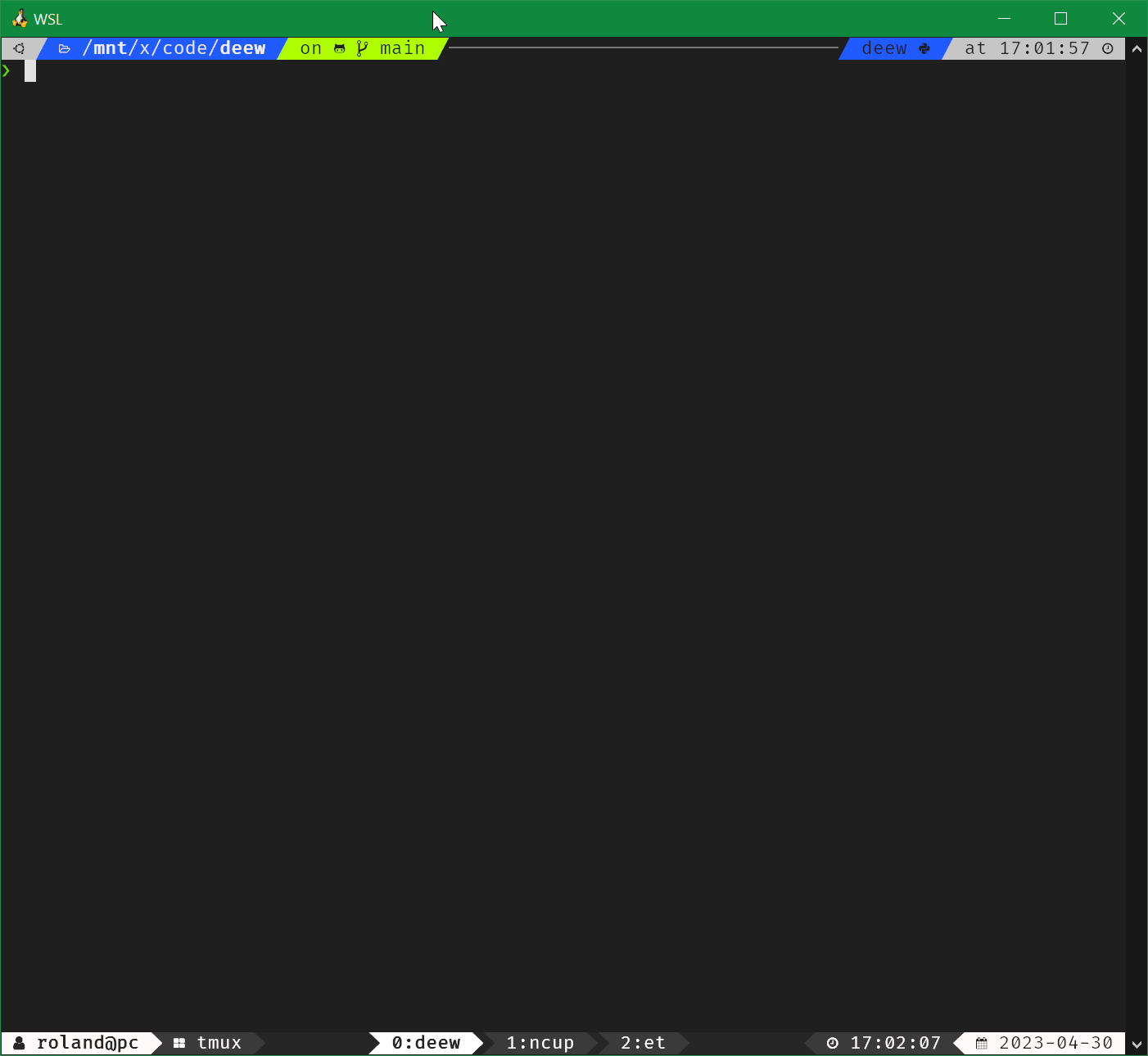English readme • Magyar leírás
- handles Dolby's XML input fuckery in the background, giving you a proper CLI interface
- converts inputs to RF64 which DEE can use
- bit depth, number of channels and other infos are parsed from the source
- an XML file will be generated for each input based on the settings
- the script utilizes thread pooling for batch encoding (see config)
- supports WSL path conversion for the Windows version of DEE (see config)
- in case of an invalid bitrate it will pick the closest allowed one
- automatic sample rate conversion using ffmpeg's soxr resampler in case of an unsupported sample rate
- for DD/DDP/AC4 unsupported rates will be converted to 48 kHz
- for TrueHD unsupported rates will be converted to 48 kHz if source sample rate is lower than 72 kHz, otherwise will be converted to 96 kHz
- automatic channel swapping for 7.1 sources (DEE swaps Ls Rs with Lrs Rrs for some reason)
- automatic dialnorm setting
- automatically compensates for DEE's 256 sample delay (DD and DDP encoding)
- checks if intermediate file is already created so you can encode different formats/bitrates using a single intermediate file, for example:
deew -f dd -b 448 -i input -k
deew -f dd -b 640 -i input -k
deew -f ddp -i input - works even with video inputs (first audio will be selected)
- fancy terminal output using rich
- versatile delay option that supports ms, s and also frame@fps formats
- parsing delay from filenames
- Python (you don't need it if you use a standalone build of deew)
- ffmpeg
- ffprobe
- Dolby Encoding Engine
- install DEE (if you use macOS, install DME)
- for TrueHD encoding support you need the Windows version
- if you use WSL1 use the Windows version for better performance
- if you use the Windows version of DEE under Linux (and not from WSL) / macOS install
wine-binfmt
- place your
license.licfile next to the DEE binary (dee.exeunder Windows,deeunder Linux/macOS) - if DEE throws
Failed to load library "...dll".errors when you run deew install VisualCppRedist AIO
- grab the latest build from: https://github.com/pcroland/deew/releases
- run with:
deew
(run the binary from terminal, doubleclicking it won't work) - on the first run it will create a config file, choose where you want to keep it
- updating: grab the latest build from: https://github.com/pcroland/deew/releases
- install Python and pip if you don't have it already
- run:
pip install deew - run with:
deew - on the first run it will create a config file
- updating:
pip install deew --upgrade
If you don't want to use full paths for the binaries in your config or when you use them from CLI, I suggest to setup system PATH variables
- open
cmd.exeas administrator - run a
setx /m PATH "%PATH%;[location]"command for each path that contains binaries
(replace[location]with the path) - for example:
setx /m PATH "%PATH%;C:\bin\dee"
setx /m PATH "%PATH%;C:\bin\ffmpeg"- add a
PATH="[location]:$PATH"line in your~/.bashrcor~/.zshrcfile for each path that contains a binary
(replace[location]with the path) - for example:
PATH="/usr/local/bin/dee:$PATH"
PATH="/usr/local/bin/ffmpeg:$PATH"❯ deew -h
deew 3.2.1
USAGE: deew [-h] [-v] [-i [INPUT ...]] [-ti INDEX] [-o DIRECTORY] [-f FORMAT]
[-b BITRATE] [-dm CHANNELS] [-d DELAY] [-r DRC] [-dn DIALNORM]
[-in INSTANCES] [-k] [-mo] [-fs] [-fb] [-lb] [-la] [-np] [-pl]
[-cl] [-c] [-gc]
FLAGS:
-h, --help show this help message.
-v, --version show version.
-i, --input [INPUT ...] audio file(s) or folder(s)
-ti, --track-index INDEX default: 0
select audio track index of input(s)
-o, --output DIRECTORY default: current directory
specifies output directory
-f, --format FORMAT options: dd / ddp / ac4 / thd
default: ddp
-b, --bitrate BITRATE options: run -lb/--list-bitrates
default: run -c/--config
-dm, --downmix CHANNELS options: 1 / 2 / 6
specifies downmix, only works for DD/DDP
DD will be automatically downmixed to 5.1 in case of a 7.1 source
-d, --delay DELAY examples: -5.1ms, +1,52s, -24@pal, +10@24000/1001
default: 0ms or parsed from filename
specifies delay as ms, s or frame@FPS
FPS can be a number, division or ntsc / pal
you have to specify negative values as -d=-0ms
-r, --drc DRC options: film_light / film_standard / music_light / music_standard / speech
default: music_light (this is the closest to the missing none preset)
specifies drc profile
-dn, --dialnorm DIALNORM options: between -31 and 0 (in case of 0 DEE's measurement will be used)
default: 0
applied dialnorm value between
-in, --instances INSTANCES examples: 1, 4, 50%
default: 50%
specifies how many encodes can run at the same time
50% means 4 on a cpu with 8 threads
one DEE can use 2 threads so 50% can utilize all threads
(this option overrides the config's number)
-k, --keeptemp keep temp files
-mo, --measure-only kills DEE when the dialnorm gets written to the progress bar
this option overrides format with ddp
-fs, --force-standard force standard profile for 7.1 DDP encoding (384-1024 kbps)
-fb, --force-bluray force bluray profile for 7.1 DDP encoding (768-1664 kbps)
-lb, --list-bitrates list bitrates that DEE can do for DD and DDP encoding
-la, --long-argument print ffmpeg and DEE arguments for each input
-np, --no-prompt disables prompt
-pl, --print-logos show all logo variants you can set in the config
-cl, --changelog show changelog
-c, --config show config and config location(s)
-gc, --generate-config generate a new config
deew -i *thd
encode DDP
deew -b 768 -i *flac
encode DDP@768
deew -dm 2 -f dd -b 192 -i *.ec3
encode DD@192 with stereo downmixing
deew -f dd -b 448 -in 4 -i S01
encode DD@448 using 4 instances (input is a folder)
deew -f thd -i *w64
encode TrueHD
deew -f dd -i *dts -k
deew -f ddp -i *dts
encode multiple formats/bitrates while creating the temp file only once












